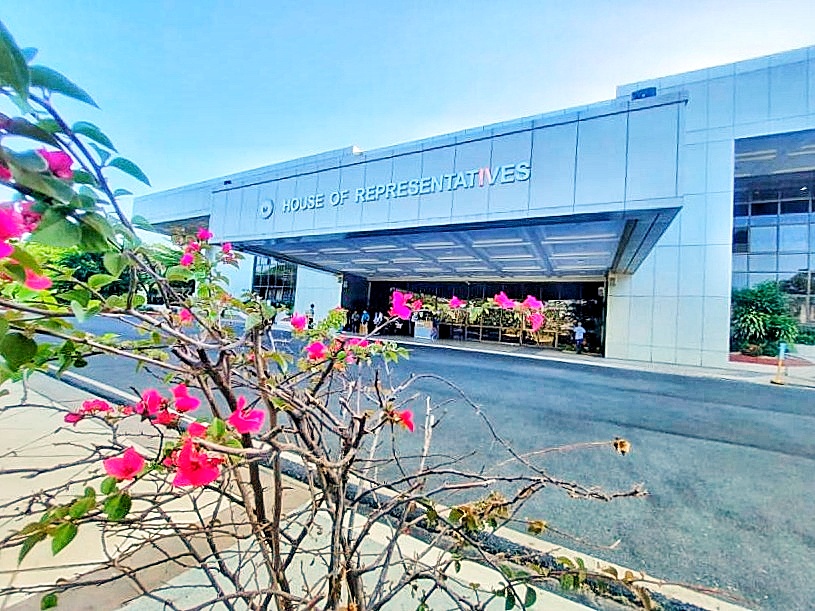House unanimously passes Internet Voting Bill on 3rd reading
At A Glance
- The House of Representatives has unanimously approved on third and final reading the proposed Overseas Electronic Registration and Voting Act, as embodied in House Bill (HB) No.10178.
 House of Representatives (Ellson Quismorio/ MANILA BULLETIN)
House of Representatives (Ellson Quismorio/ MANILA BULLETIN)
The House of Representatives has unanimously approved on third and final reading the proposed Overseas Electronic Registration and Voting Act, as embodied in House Bill (HB) No.10178.
More commonly known as Internet Voting Bill, the measure garnered 188 affirmative votes during nominal voting in plenary session Wednesday night, May 15. There were neither negative votes nor abstentions.
It was only last week when HB No.10178 was sponsored on the floor by its principal author, OFW Party List Rep. Marissa “Del Mar” Magsino. It was approved on second reading on May 8.
The Internet Voting Bill seeks to expand the registration and voting methods available to overseas Filipino voters under existing laws to include Internet or electronic registration and voting through available technologies as the Commission on Elections (Comelec) may deem appropriate, as an additional option, to provide greater ease and encourage overseas Filipino Workers (OFWs) and overseas Filipinos (OFs) to exercise their right of suffrage, with due regard to protecting their privacy and the sanctity of their ballots.
Magsino highlighted in her sponsorship speech the low voter turnout among overseas voters.
She says this dilemma is attributable to the considerable physical distance between the overseas voters’ workplaces or residences and the location of the Philippine Posts in their host countries, to the itinerant character of their employment as in the case of Filipino seafarers, and on other restrictive personal circumstances of the overseas voters while at work.
Comelec said that of the 1.69 million registered overseas voters, including OFWs, only around 600,000 or 35.5 percent actually voted in the last 2022 National and Local Elections (NLEs).
“The low voter turnout of overseas voters is a case of electoral disenfranchisement, regardless whether of voluntary or involuntary nature," Magsino said.
While Comelec has shown progress in implementing Internet voting for the 2025 mid-term elections, Magsino noted in her speech the necessity of a specific statutory basis to solidify and support this initiative.
“The fact that Comelec is already in the process of employing internet voting as an option for our overseas voters in the coming 2025 national elections does not diminish the importance nor the urgency of enacting the proposed measure.
"To emphasize, the measure will provide a solid statutory basis for the Commission’s current and future undertakings on Internet voting as well as securing budgetary support for the purpose. Moreover, House Bill 10178 will allow Internet voter registration, which the existing law does not provide," explained the lady solon.
The poll body had announced that Internet voting will be the primary mode of casting ballots for overseas Filipinos in 2025, except in countries with internet restrictions where mail-in and physical voting will likely be implemented in around 17 Philippine Posts across the world.